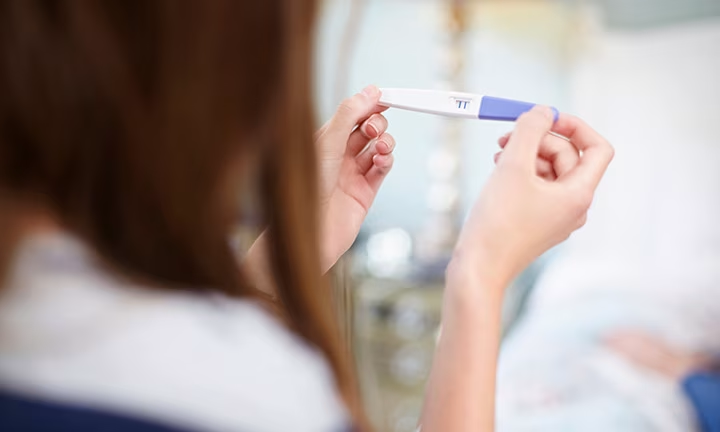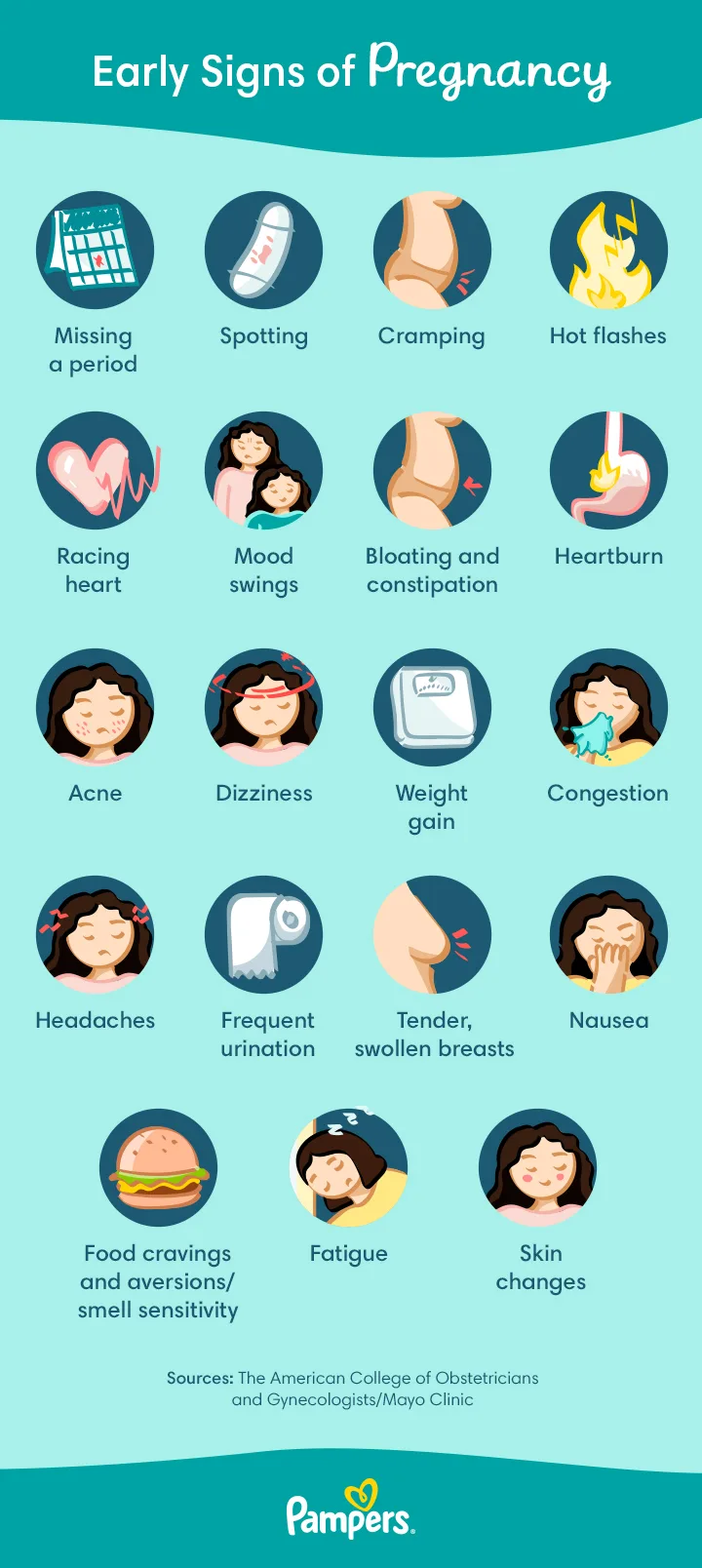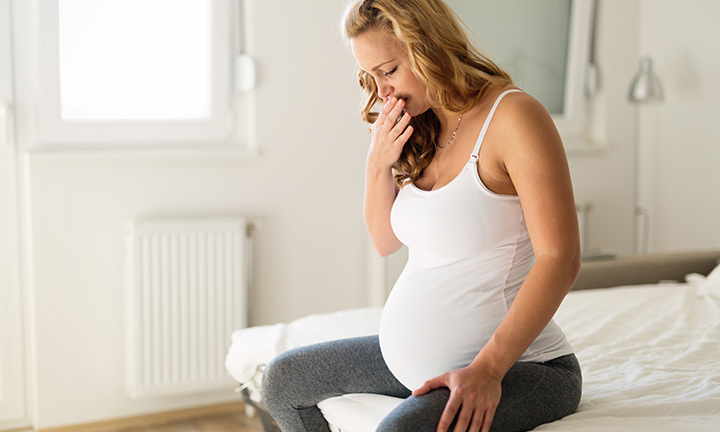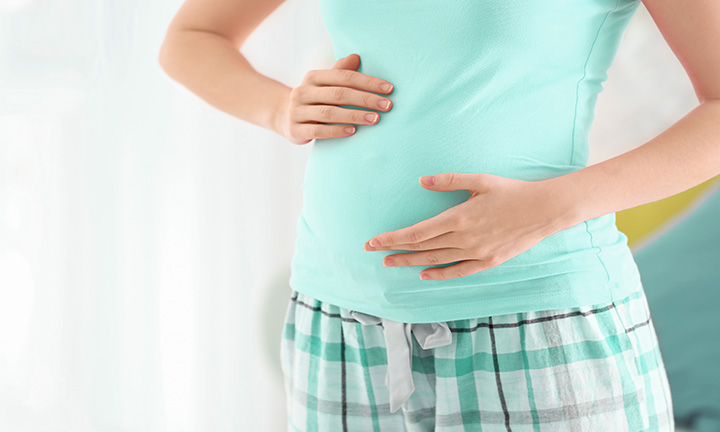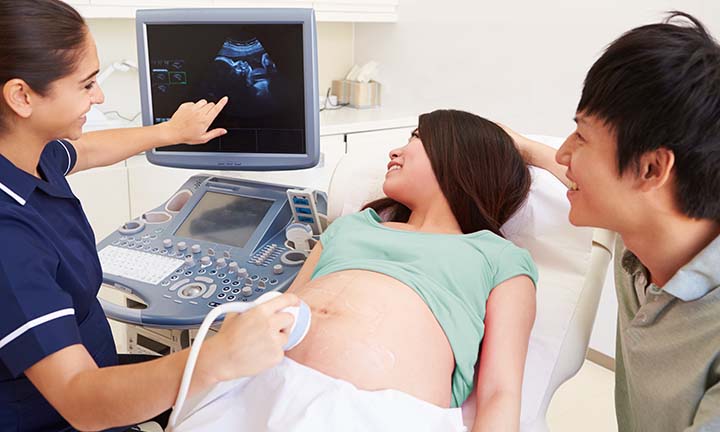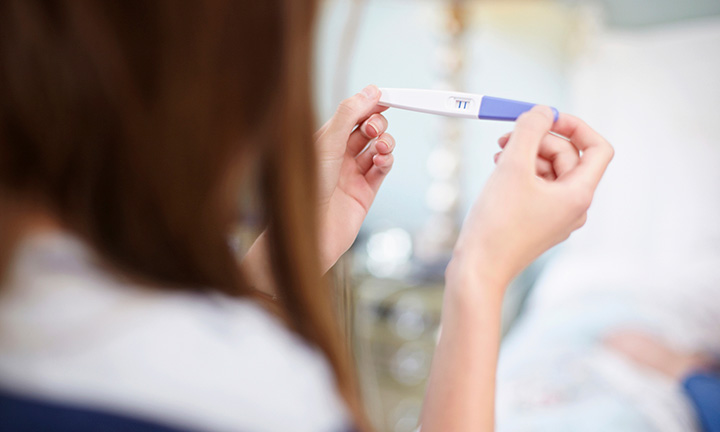Sometimes it's hard to interpret the signals your body is sending you, but if you suspect you might be showing the first signs of pregnancy, you're probably eager to confirm it.
Missing a menstrual period. A missed period is perhaps the earliest and most reliable indicator of pregnancy, however, it is still possible to have some light bleeding or a light period even while pregnant.
Implantation bleeding. During the first few weeks of pregnancy, you may experience a bleed similar to a light period, with some spotting or only losing a little blood. Always seek advice from a midwife or medical professional. Whilst an implantation bleed is generally normal, midwives always advise calling to discuss this further in case it is a symptom of miscarriage.
Cramping. You may find that you suffer from an increased number of cramps during pregnancy. A cramp is a sudden, sharp pain that generally occurs in your calf muscles or feet. It can often be helpful to stay hydrated, and do some stretching and light exercise during pregnancy to relieve cramps.
Feeling hot. Women often feel warmer than usual during pregnancy. This is due to elevated pregnancy hormone levels and an increase in blood supply and metabolism. Your body will likely compensate for this increase in heat by sweating more.
Frequent urination.If you need to pee more often than usual, especially during the night, this could be a sign of pregnancy.As pregnancy progresses, frequent urination can increase as the foetus grows and applies more pressure to the bladder.
Mood swings. Growing a new life can be an exciting and awe-inspiring thing, but it can also cause women to feel anxious, vulnerable and overwhelmed. It’s entirely normal to experience unsettling thoughts from time to time.
Tender, tingling, swollen breasts. Your breasts may feel more tender and become larger, not dissimilar to the days before your period comes. You may also experience a tingling sensation, along with more visible veins and darkened nipples.
Morning sickness. This is one of the classic pregnancy symptoms, but don’t be fooled by the name: morning sickness can occur any time of day. When you’re pregnant, these symptoms tend to appear early on, around six weeks following your last period. You can find out more about morning sickness and how to cope with it here. Should you find you’re throwing up continuously and you’re struggling to keep anything down, you may have a condition known as hyperemesis gravidarum, which needs treatment. Contact your GP or local maternity unit if you find you’re sick all the time. Often, pregnant people can contact maternity services directly to be assessed more quickly.
Acne. Many women experience symptoms of acne when pregnant, particularly during the first 3 months. This can be attributed to the overproduction of sebum (oil) in the skin due to hormonal changes, which leads to pimples.
Dizziness. All these hormonal changes going on inside may also make you feel faint while pregnant. To avoid feeling faint, try to get up slowly after sitting or lying down or turn on your side if you’re lying on your back. If you feel faint when standing, it’s best to find a seat quickly and wait for the dizziness to pass.
Food cravings and a change in taste. Signs of early pregnancy can also include changes in tastes and cravings. You may find your senses of taste and smell become heightened, maybe you’ll feel a metallic taste in your mouth or you’ll start craving new foods. On the other hand, food and beverages you once loved, like coffee or tea, may become repulsive to you.
Tiredness. It’s common to feel tired when you’re pregnant, particularly in the first 12 weeks. This occurs due to the hormonal changes that are taking place in your body, which can not only make you feel exhausted, but also result in mood swings.
Headaches. You may find you experience some headaches during early pregnancy, which could be due to rising hormone levels. They may also be attributable to increased blood flow or dehydration during pregnancy. Be sure to speak to your midwife if you’re suffering, as they can sometimes be a sign of something more worrying.
Constipation. A lot of women experience constipation and bloating while pregnant. This may be down to a large amount of progesterone being produced, which slows down your digestive system.
Hair changes. Hormonal changes that take place during pregnancy may make your nipples and the areola go darker. You may also find that your skin colour becomes a little darker, either in patches or all over due to increased production of melanin.
Each mum-to-be and each pregnancy is unique, so you may only notice some of these early signs of pregnancy. What’s more, the symptoms you notice in a second pregnancy may be different from what you experienced the first time around. It’s also normal for these changes to fluctuate on a day-to-day basis.
Discharge. A milky-clear discharge is your body’s way of cleaning the cervix. It is typical throughout life but increases during pregnancy.
Implantation cramps.Implantation cramping can occur early on when the fertilised egg nestles into the uterine wall. Later on, that cramping sensation can be a result of round ligament pain or Braxton Hicks ‘practise’ contractions.
Weight gain. Weight gain can be normal in pregnancy, but may also be misunderstood as fluid retention, especially in the third trimester, and changes in body shape. Too much weight gain can have health implications for mother, baby and labour. Keeping active and maintaining a normal healthy diet is encouraged, and no additional calorie consumption is required until third the trimester. Your GP or midwife can help you stay on track throughout your pregnancy.
Back pain. Back aches can be caused by hormonal changes, weight gain, and changes in your posture due to your growing belly.
Heartburn. Hormonal changes relax the muscles that keep digestive acids out of the oesophagus, but heartburn can also be caused when your growing baby pushes up against your stomach.
Itchy skin. Wherever your skin stretches during pregnancy (the abdomen, breasts, hands, and feet), it could feel itchy. If this is persistent, you should seek midwife or medical advice (Itching can be a sign of obstetric cholestasis).
Shortness of breath. Pregnancy hormones can change the frequency and depth of your breathing, meaning you’ll get winded more easily. Your baby pushing against your lungs, plus the extra weight gain, can also cause that out-of-breath feeling. on exertion. If you experience shortness of breath suddenly, without exertion, especially if it’s coupled with chest pain or palpitations, contact your doctor or midwife immediately.
These daily signs of being pregnant can be pretty tiresome, but in no time at all, your due date will be here, and you’ll be taking your baby home. You’ll see that all these pesky pregnancy symptoms will have been worth it!
If you want to find out more about what happens in those early weeks of pregnancy, see our Pregnancy Calendar.
